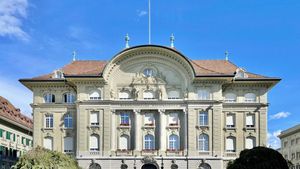Duduzile Zuma-Sambudla, daughter of former South African President Jacob Zuma, made headlines this week as she appeared in court to face serious terrorism charges connected to her alleged role in the violent riots of July 2021. The events around her case have stirred significant political controversy and public interest, as they highlight the complex interplay of politics and crime within South Africa's current socio-political climate.
On January 31, 2025, Duduzile, 42, was charged with incitement to commit terrorism and public violence. The charges stem from social media posts she allegedly made during the uprisings following her father's imprisonment for contempt of court, where he defied a judicial inquiry related to corruption. According to police spokesperson Brigadier Thandi Mbambo, this arrest was initiated by “a result of a...meticulous investigation by the Durban Crimes Against the State unit.”
The riots, which saw over 350 individuals lose their lives and caused unprecedented economic destruction estimated at R50 billion, erupted amid widespread anger and frustration directed toward the government. It marked one of the bloodiest instances of civil unrest since the end of apartheid, with both looting and violence sweeping through key areas such as KwaZulu-Natal and Gauteng.
Duduzile surrendered voluntarily to police before appearing at the Durban Magistrate’s Court, where the case was adjourned to March. Her lawyer insists her social media posts, which she claimed were misinterpreted, were not meant to incite violence, saying they simply reflected her views during the protests. The assertion of manipulation was echoed by Duduzile herself, stating, "The fact it has taken the National Prosecuting Authority (NPA)...four years to bring these charges indicates a weak case."
This dramatic court appearance was followed by signs of support from her father, Jacob Zuma, who attended the proceedings. He addressed supporters gathered outside the court, asserting, "They are now arresting my child because they don’t like her, nor do they like her father, or the party he leads." His words were met with cheers, highlighting the intertwined fates of the Zuma family and their political followers.
The state argues Duduzile’s posts served to stoke the flames of unrest during the time of chaos. Advocate Mthunzi Mhaga from the NPA stated, "The state alleges...that she unlawfully incited, instigated, or procured others to disturb public peace..." This statement places marked emphasis on social media's role as both a catalyst for interaction and potential ignition for violence within politically charged climates.
During the upheaval, Duduzile had actively posted on platforms such as X (formerly Twitter), using phrases like "KZN, we see you" to express solidarity during protests. Such communication caught the attention of authorities, who perceived it as incendiary rhetoric encouraging unrest. While her posts drew ire, others argue the underlying causes of the riots related more deeply to poverty, inequality, and despair due to COVID-19 lockdown measures.
The investigation has been described as uniquely complex, requiring time and specialized knowledge to assess the content and impact of communications made on social media. Both the police and prosecutors affirmed their commitment to ensuring accountability for actions connected to the riots, indicating there may be more such cases for other individuals believed to have contributed to the violence.
The arrest of Duduzile Zuma-Sambudla, alongside growing political tensions, has reignited discussions surrounding former President Zuma and the widespread discontent among his supporters. With South Africa facing significant challenges from poverty and social inequality, the court's progression will be closely watched for its ramifications on the political climate and the fabric of civil society.
The case has not only sparked conversations about accountability and justice but has also drawn public sentiment about policing and political persecution. The gathering of Zuma loyalists outside the court, supportive of both Duduzile and her father, indicates the potential for the situation to evolve beyond mere legal proceedings. The broader socio-political discourse surrounding government actions remains contentious.
The next court appearance is set for March, where Duduzile will continue to fight the charges against her, claiming they are politically motivated and stemming from her family's legacy as contentious figures within the post-apartheid narrative.
For South Africa, this case reflects the enduring legacies of past leadership, the quest for accountability, and the inevitable tensions of power, politics, and public sentiment.



